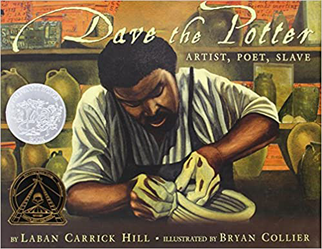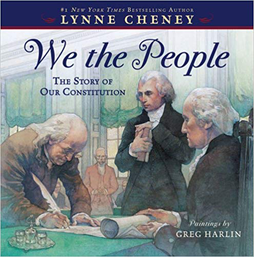 When well done, this initiative creates empathy and a much-needed sense of human solidarity. From an early age, children come to value the experiences of those who have grown up in circumstances they cannot imagine. It is wise and good for children to know the stories of Dave the Potter, a South Carolina poet, potter, and slave, who left a legacy of beauty, or of Belle Baumfree who became “Sojourner Truth” or Booker T. Washington, whose admonition to “cast down your bucket where you are” gave hope and a game plan to generations of African Americans. It is uplifting to know the story of Elizabeth Jennings, the free black girl who in 1854 was denied a ride on a NYC streetcar, sued the streetcar company, and won, nearly 100 years before Rosa Parks. It is important to know the stories of Elizabeth Blackwell, America’s first woman doctor, who opened a hospital for the poor and orphaned in New York City, Jane Addams, whose work founding Hull House in Chicago aided tens of thousands of immigrants, or Wangari Maathai, whose work to preserve Kenya’s green belt saved her homeland from deforestation. We could go on and on, and on the Core Virtues site, we indeed DO. See our tabs for Black History Month and Women’s History Month and Labor history in Labor Day and every other virtue month. And more tabs are on the way. In 2019, Congress designated June as “Immigrant Heritage Month” and November as “Native American Heritage Month” (both proclamations signed by Donald Trump.) That’ll mean more stories for us. In Immigrant History month, we’ll get to feature Andrew Carnegie, Mother Jones, Samuel Gompers, Jacob Riis, Cesar Chavez and Madeleine Albright. In Native American History, stories of Sequoyah, inventor of the Cherokee alphabet, Sitting Bull, Chief Joseph, as well as many beautiful works of fiction inspired by truth.  Is all this diversity celebration a bad thing? Only to the extent that we start celebrating one at the expense of the other, emphasizing victimhood, and losing sight of the main lines of American History – which has been a beacon of liberty and opportunity. The United States is a creedal nation. In 1776-- a time when nearly three-quarters of the world’s population lived under some sort of forced servitude (slavery, serfdom, indentured servitude, concubinage) --the United States was born of the conviction that “all men are created equal.” That was an extraordinary historical achievement, a first in human history. Was the execution of that radical idea flawed from the beginning? Yes – the glaring contradiction of slavery existed for nearly a century after the founding and trapped nearly 14% of our population in bondage. And women did not at the time have the right to vote and if married, could not own property. We could continue to list ways in which various members of our citizenry did not quite have equity in 1776 or 1861 or 1920 or 2020. But the radical idea of rights and liberties embedded in our founding documents and in our law has provided fertile soil for ongoing reform and progress. And THAT has been part and parcel of the American experience from the outset. No other nation reforms and reinvents itself as frequently as the United States, and does so in the spirit of liberty and equality. The danger of our new obsession with diversity is celebrating difference as “essence.” Compassion for one ought not to imply contempt of another. Diversity ought not to be a synonym for division. We need to know our past and learn from it – its dramatic accomplishments as well as its missteps. We share citizenship in this "liberty and justice for all" republic, and it is worth remembering that we have those very ideals as common ground. Maybe we need compassion for ourselves, our past, and the immensity of the social and political tasks we have undertaken. Mary Beth Klee To read more from Telling Our Stories, visit our Blog Archives page. Comments are closed.
|
AuthorWrite something about yourself. No need to be fancy, just an overview. Archives
July 2024
Categories |
